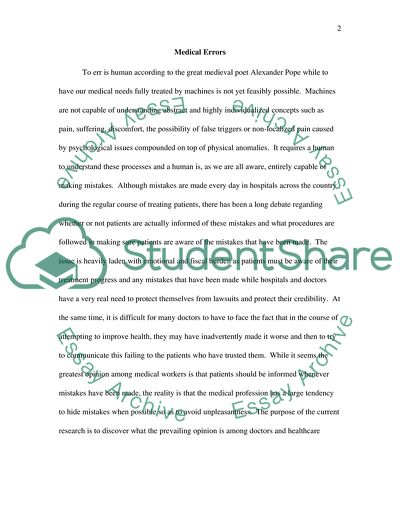Cite this document
(“Analysis of Medical Errors Research Paper Example | Topics and Well Written Essays - 3000 words”, n.d.)
Analysis of Medical Errors Research Paper Example | Topics and Well Written Essays - 3000 words. Retrieved from https://studentshare.org/health-sciences-medicine/1723297-disclosing-medical-errors
Analysis of Medical Errors Research Paper Example | Topics and Well Written Essays - 3000 words. Retrieved from https://studentshare.org/health-sciences-medicine/1723297-disclosing-medical-errors
(Analysis of Medical Errors Research Paper Example | Topics and Well Written Essays - 3000 Words)
Analysis of Medical Errors Research Paper Example | Topics and Well Written Essays - 3000 Words. https://studentshare.org/health-sciences-medicine/1723297-disclosing-medical-errors.
Analysis of Medical Errors Research Paper Example | Topics and Well Written Essays - 3000 Words. https://studentshare.org/health-sciences-medicine/1723297-disclosing-medical-errors.
“Analysis of Medical Errors Research Paper Example | Topics and Well Written Essays - 3000 Words”, n.d. https://studentshare.org/health-sciences-medicine/1723297-disclosing-medical-errors.


